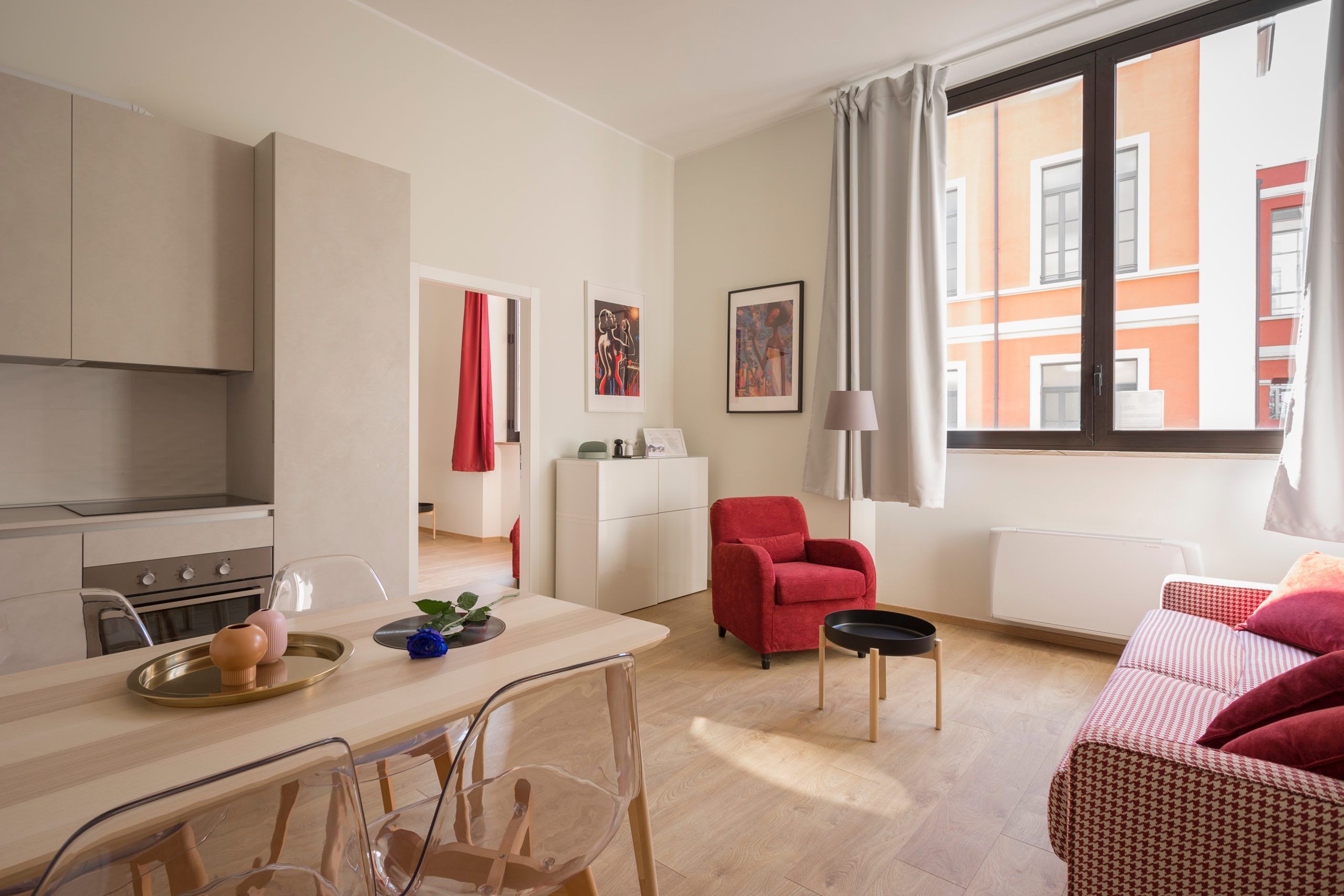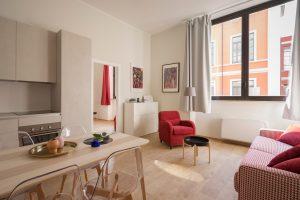
Finding Student Accommodation in Australia
So, are you ready to go apartment hunting?
If you’re a little nervous, that’s completely understandable. But hundreds of former OzTREKK students have done it—and so can you! We have assisted thousands of students understand the steps required to securing accommodation in Australia—and we haven’t lost a student yet.
First, do your best to arrive a few weeks before Orientation gets going. This will give you enough time to find suitable accommodation and settle in before classes commence. Many OzTREKK students have told us that it takes 2–3 weeks to find accommodation (sometimes longer), especially in Sydney, Melbourne, Brisbane and Gold Coast.
#OzTREKKStudentTip: If you arrive just after Christmas, you can bet real estate agents are still on holidays! Don’t expect anyone to respond to phone messages right away.
Get ready!
- Ensure you have temporary accommodation arranged.
- Have a bank account set up before you get to Australia—you usually cannot pay bonds and deposits in cash!
- Get a cell phone as soon as possible.
- Have your “accommodation” folder ready: copies reference letters from previous landlords or employers, banking info, etc.)
- Avoid rushing your house hunting. Feeling rushed can hinder your ability to make wise choices.
- Be informed. Before you arrive, read as much as you can about the various housing options and how to arrange them. Then you can get straight into house hunting after you arrive, rather than trying to figure out where to go and what to do.
- It’s okay to choose on-campus accommodation for the first semester/year! Lots of OzTREKK students do this. Easy-peasy!
“Be prepared for it to take over one month to find a place—this is something a lot of people have told me they experienced. Try and find an airbnb close to your school. Look on Facebook Marketplace. Check out the place before you make a commitment. Check how often public transport runs in that area, preferably trams and trains.” OzTREKK student Yewande

1. Think about your needs and budget.
Like most of the decisions you are making as you prepare to become an international student, there are many variables to consider. Your accommodation options in Australia are varied, and when searching for off-campus housing, you will need to contemplate location, public transportation accessibility, proximity to campus and shopping, lifestyle, your study habits, and cost, among other factors.
2. Understand your rights and responsibilities as a tenant in Australia.
As an international student, it is important for you to review and understand your rights and responsibilities for renting property in the Australian state in which you are planning to rent. Visit Australian Government: Buying, selling or renting property for more info.
3. Research your long-term accommodation options.
To begin your research for accommodation, you need to know how to find and view rental properties. Generally, most Australians would view private rental listings via the internet (e.g., realestate.com.au, or Flatmates), in their local newspaper or through a local real estate agent, who will provide a listing of local rental properties currently available. Most Australians rent an apartment or house through a real estate agent, who acts as the landlord for the property owner.
Take the time to explore your Australian university’s “Accommodation” website. Most universities have extensive information about where to look, which suburbs you should consider, and outline your choices for on-campus and off-campus housing. For off-campus accommodation, most Australian universities have private rental databases for students to explore options before they arrive in Australia. So many tips!
It is recommended that you do not pre-book rental accommodation (unless it’s student housing), but use the private rental database to become familiar with your options before arriving in Australia.
“Start looking at realestate.com.au before you come. Make sure to have previous landlord references. Give yourself more time than you think you need to get into a place (there’s more paperwork and waiting involved than in Canada). Start getting to know the area where your university is early (like how close grocery stores are/other common places you would go). Google Maps is your friend!” OzTREKK student Devon
4. Know how to secure off-campus accommodation.
Here is a general overview of the process to secure a private rental apartment or house in Australia:
Complete a Rental Application: This application will have to be approved in order for you to begin your tenancy. It’s a good idea to prepare an “accommodation folder” with copies of everything you may need. We highly recommend you bring the following documents with you from Canada, as you may be asked for these when applying for a rental property:
- receipts from previous landlords
- reference letters from previous landlords
- passport/visa
- driver’s licence
- student card
- health card
- bank statement / evidence of money to pay your rent and bond deposit
Sign a Tenancy Agreement: Once your application is approved, the real estate agent or landlord will give you the tenancy agreement to read, understand and sign. Any questions should be directed to the real estate agent or landlord for clarification. Keep a signed copy of this.
“Pair up with an Australian; it’s easy to stick to what you know, but it’s great experiencing more of the Aussie culture. Real estate also goes very quick, so what you see two weeks before probably won’t be available when you get there. Use flatmates.com and post in the uni Facebook groups to find someone you are compatible with.” OzTREKK student Kleopatra
Pay a Bond and Rent Advance: Most properties require a bond, or security deposit, to be placed on the property when a rental application is accepted. This is usually the cost of one month’s rental. The security deposit is paid into the Residential Tenancy Bond Authority (RTBA)—a government body—and it remains in this trust account until you vacate the property.
The bond will be refunded at the end of your lease if you return the property in the same condition (excluding reasonable wear and tear) as when your tenancy began. You will also need to pay your landlord a rental advance (usually the first month’s rent) up front to secure the property. These funds go to the landlord as part of his rental earnings.
To complete this phase, you pay the bond, and the amount of rent required in advance. The real estate agent or landlord will give you a bond lodgment form to complete and sign. Keep a signed copy of this. You will then receive a receipt from the RTBA within seven days of receiving the bond. Keep this receipt as you will need to access your bond money at the end of your tenancy!
Complete a Condition Report: The real estate agent or landlord then fills in a property condition report and marks down what he/she believes to be the condition of the premises. You can then make comments on what you believe to be the condition of the premises and hand in the condition report within seven days.
How to protect yourself
- Never pay a deposit on a private rental until you’ve seen it in person.
- Always inspect a property in person. If the landlord doesn’t let you, move on.
- Search the property online and find out where it is and if it suits your needs (is it near bus/train stops, grocery stores, etc.?).
- Ask about all the terms and conditions of your stay.
- Try to look for accommodation through official channels and websites rather than through forums and social media.
- Keep copies of all correspondence with the people you’re renting from.
- When you find a place you like, take your time going through it when you’re filling out your condition report. Take photos if you think you should!
Consider on-campus or managed student housing
Offered at all our universities, on-campus residences can be individual bedrooms or shared bedrooms with shared facilities. These on-campus residences are called “colleges.” Some have everything included, like meals, furniture, internet, etc. OzTREKK recommends on-campus accommodation for all high-school leavers or if you would prefer the convenience of “just getting it over with!” Many OzTREKK students choose this as the first step, then meet new people (future roommates!) and decide to get an apartment.
“Living on campus is a great option. It’s fully furnished and can be organised before you even arrive in Australia. I haven’t had any issues with my accommodations and it’s so close to campus. Living in a private rental would be a cheaper option, but finding roommates and a place to stay beforehand may be challenging.” OzTREKK student Aaron
Managed student housing is sometimes off campus. These are similar to on-campus colleges and are student-purposed apartments. These are usually fully furnished and either managed by the university or through a private company. Students living in these apartments are usually self-sufficient, although it may be possible to purchase meal plans. Students are usually responsible for connecting and paying for utilities such as water, telephone, electricity and gas in their own name and at their own cost. They can be booked in advance, from home.
*



































Ask A Question
Ask us about your program of interest, or if you have a question about our services.
CONTACT US TODAY